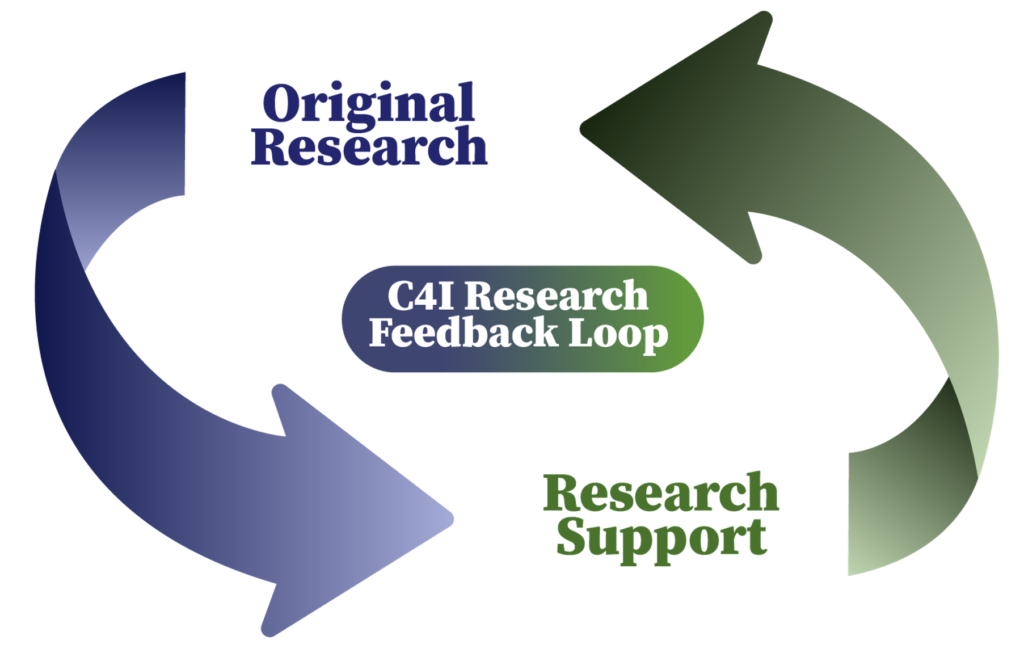C4I is a research center in two ways. First, it conducts its own research on crossdisciplinary process, contributing to literatures in philosophy and in crossdisciplinary theory and practice. (Here ‘crossdisciplinary’ is used as a generic term to cover multi-, inter-, and transdisciplinary research and practice.) Second, it supports crossdisciplinary research, providing research-informed experiences for research teams and groups that focus on building collaborative and communicative capacity. A key aspect of C4I’s research mission involves emphasizing the importance of the arts and humanities to crossdisciplinary research on complex problems. The leaders of the future must be able to weave humanities values into scientific endeavors in ways that lead boldly toward new discoveries and enable us to effectively respond to our most difficult global challenges.
C4I research is organized into three principal areas:
- Inquiry into the nature of crossdisciplinarity as a mode of research practice, broadly construed
- Research on facilitation efforts designed to build collaborative and communicative capacity in crossdisciplinary research and practice, and in particular, the Toolbox dialogue method
- Research and creative activity involving interdisciplinary arts practice, including scholarship and creative activity at the intersection of art and science

Inquiry into the nature of crossdisciplinarity
While there are many interdisciplinary research centers, there are very few centers that study interdisciplinarity. Centers of the former type may concern almost any topic, approaching it from the perspective of more than one discipline, but they rarely thematize the interdisciplinarity embodied in their approach as itself a topic of inquiry. C4I, by contrast, focuses on interdisciplinarity (and crossdisciplinarity more generally) as the focus of its research. We are interested in understanding what interdisciplinarity is and how it functions.
Research on facilitation efforts
A key part of the mission of C4I involves developing techniques and approaches that can build collaborative and communicative capacity in interdisciplinary research teams. Principal among these approaches is the Toolbox dialogue method. Our facilitative work is evidence-driven, in that we look to make facilitation decisions that are informed by evidence of the positive impact of our capacity building approaches. We collect data when we facilitate capacity building events, analyze those data to determine the value of different techniques and approaches, and produce research that reports on what we learn.
Research and creative activity involving Interdisciplinary arts
Because C4I is based in the College of Arts & Letters at MSU, it has research in the interdisciplinary arts as part of its remit. The arts have figured into C4I’s research and creativity in several ways. First, artists in C4I have produced and exhibited interdisciplinary creative work in photography, sculpture, textiles, and music. Second, researchers in C4I have investigated interdisciplinary issues at the art-science interface, including issues related to power, collaboration, and arts integration.